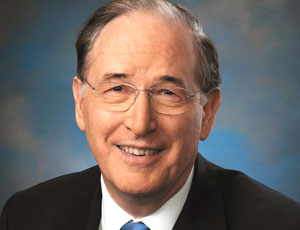The Senate commerce committee has scheduled a vote July 21 on a two-year Federal Aviation Administration reauthorization bill, which includes an increase in airport construction grants, but makes no changes in the current aviation user-fee system.

The measure, introduced July 14 by Committee Chairman Jay Rockefeller (D-W.Va.), would authorize a total of $34.5 billion over the fiscal 2010-2011 period. Of that, FAA's Airport Improvement Program construction grants would receive $8.1 billion--$4 billion in 2010 and $4.1 billion in 2011. AIP's 2009 appropriation is $3.5 billion.
The last multi-year FAA bill expired in September 2007, and the agency's programs have been operating since then under a series of extensions.Congress must act on a new aviation bill of some length by Sept. 30, when the latest stopgap runs out.
Rockefeller says that he's proposing a two-year bill instead of a measure with a longer time span, "so that the Obama administration has a chance to really work out its own...aviation program."
Senate aviation subcommittee Chairman Byron Dorgan (D-N.D.), a co-sponsor of Rockefeller's measure, says that a two-year authorization for the airport grant program "gives the airports...the cities more stability and ability to plan" compared with a one-year bill.
Rockefeller says that the bill won't make any changes in current aviation user fees. That would avoid a battle, at least for now, between major airlines and general-aviation interests over how much each should pay in aviation taxes and fees.
If the Rockefeller bill makes it through the Senate, it would go to a conference with the House, which approved a three-year, $53.5-billion FAA bill in May.
The House version includes $12.3 billion for AIP over three years, but its 2010 and 2011 allocations for that program are the same as in Rockefeller's proposal.
A major difference between the two bills is in how they treat passenger facility charges, another key source of airport infrastructure financing.
The House-passed version would raise the limit on PFCs to $7 per flight segment, from $4.50 now. Rockefeller's bill includes only a pilot program that would remove the PFC cap for six to-be-selected airports.
The American Association of Airport Executives believes the final FAA bill must include a boost in PFCs, says Todd Hauptli, senior executive vice president.


Post a comment to this article
Report Abusive Comment